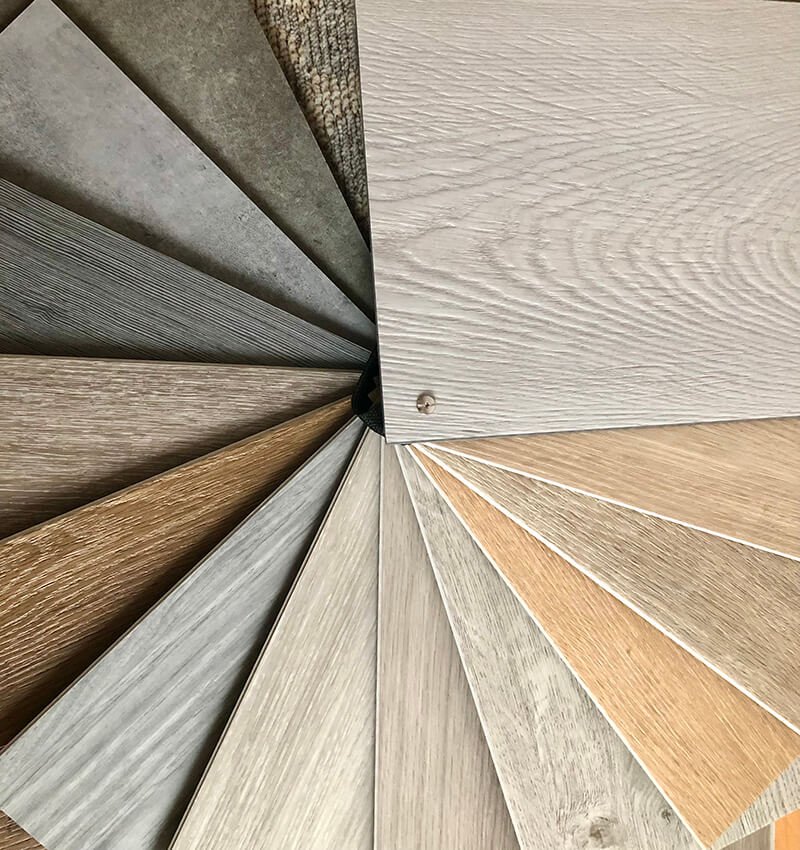When selecting your ideal flooring option, you have a wide variety of materials to choose from. But in recent years vinyl has become the clear favorite due to its impressive combination of affordability, durability, and versatility. We’ll break down the differences between SPC (Stone Plastic Composite), LVT (Luxury Vinyl Tile), and WPC (Wooden Polymer Composite) so that you can determine which type offers the perfect balance for your needs!
SPC Flooring
SPC Flooring is an impressive flooring option that combines the beauty of stone with the strength and durability of plastic. Made up of limestone powder, PVC, and stabilizers, this type of flooring will stand strong against water damage, scratches, or dents – making it a perfect fit for high-traffic areas such as hallways, living rooms, or commercial spaces. Plus its easy installation process allows you to assemble your own floating floor in no time! With Strength & Stability at its core; SPC Flooring offers all homeowners peace of mind when investing their home improvement project budget into lasting quality materials.
With SPC flooring, homeowners don’t have to worry about warping or buckling due to water exposure. This makes it an ideal choice for rooms that are prone to moisture like bathrooms and kitchens. Plus maintenance is a breeze — just sweep, vacuum, or mop with a damp cloth; no special cleaning products are necessary! And since the material resists stains too? You can rest assured any spills will be quickly taken care of without damaging your floors in the long run.

LVT Flooring
LVT, or Luxury Vinyl Tile, is a multi-layered flooring solution designed to bring the look of hardwood and stone surfaces into any home without breaking the bank. Unlike traditional materials which require expensive fabrication and regular maintenance costs over time, LVT has wear layers that protect against scratches and stains – meaning it looks great with minimal effort. Whether you’re looking for warmth in your living room or style in your bathroom – let luxury vinyl tile be the finishing touch to an elegant space!
With LVT flooring, there’s no need to worry about damage from kids or pets. Its wear layer creates a barrier that helps keep scratches and stains away for long-lasting durability! Installation is incredibly straightforward too – you can lay it yourself with ease over existing floors – but if the DIY approach isn’t your thing then professional installers are available. Whichever way you go, this makes for an easy task that won’t break the bank either
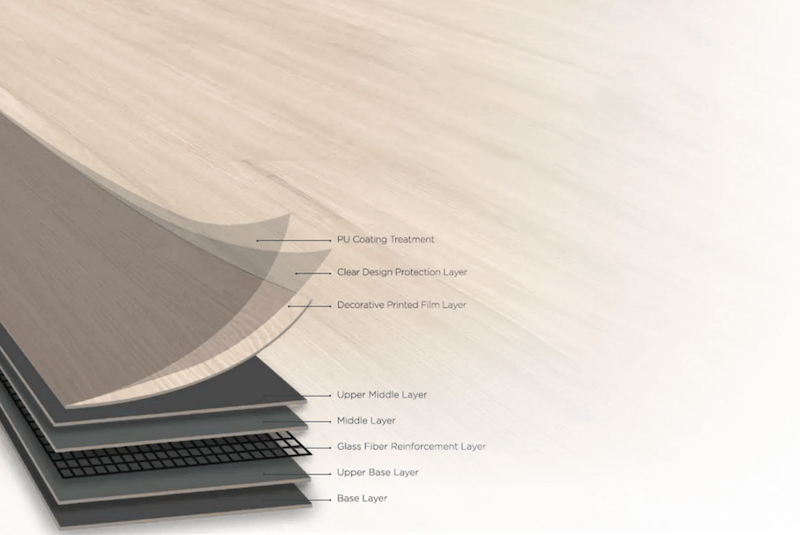
WPC Flooring
WPC stands for Wood Plastic Composite and is the perfect combination of durability, water resistance, scratch resistance, and stain protection. Its unique composition makes it an excellent choice for areas prone to moisture such as bathrooms or kitchens that need flooring with extra strength against humidity. Its modern look combined with reliability in everyday use makes this your go-to solution when you want a beautiful & dependable surface you know won’t let you down!
WPC flooring stands out as an attractive, economical option for projects that need to be completed in a timely fashion. Its stability is enhanced by the foaming agent found within its composition, making it softer and more comfortable underfoot compared to other materials. Furthermore, this lightweight material can be installed on top of already existing floors quickly and easily without the use of adhesives or nails – perfect for DIYers!

Differences Between SPC, LVT, and WPC Flooring
While SPC, LVT, and WPC flooring shares some similarities, there are some key differences between them.
Composition:
SPC flooring is made up of limestone powder, PVC, and stabilizers, while LVT flooring is made up of several layers, including a printed layer, a wear layer, and a backing layer. WPC flooring is made up of wood flour or fiber, plastic, and a foaming agent.
Water Resistance:
While all three types of flooring are water-resistant, SPC flooring is the most water-resistant due to its dense composition. LVT and WPC flooring is also highly water-resistant due to its plastic and wood composition. LVT flooring is water-resistant, but the seams between tiles or planks can be vulnerable to moisture if not sealed properly.
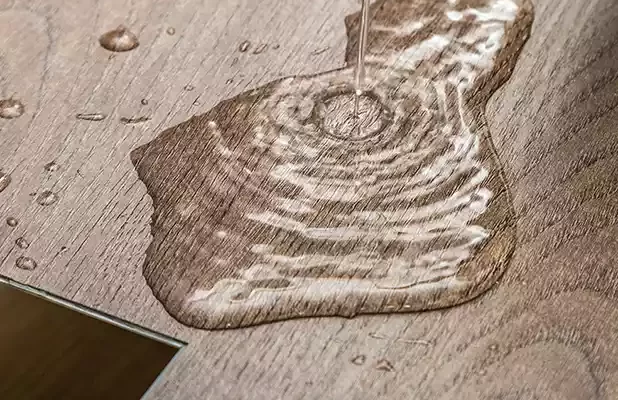
Durability:
SPC flooring is the most durable due to its dense composition and resistance to scratches and dents. LVT flooring is also highly durable, with a wear layer that protects against scratches and stains. WPC flooring is durable but may be more susceptible to dents and scratches than SPC flooring.

Stability:
SPC flooring is the most stable due to its dense composition, which makes it less likely to expand or contract with changes in temperature or humidity. WPC flooring is also stable but may be more prone to expansion and contraction than SPC flooring. LVT flooring may be less stable than SPC and WPC flooring, especially if it is not installed properly.
Comfort:
WPC flooring is the most comfortable underfoot due to its foaming agent composition, which makes it less dense than SPC flooring. LVT flooring may also be comfortable underfoot, depending on the specific product. SPC flooring is the least comfortable underfoot due to its dense composition.
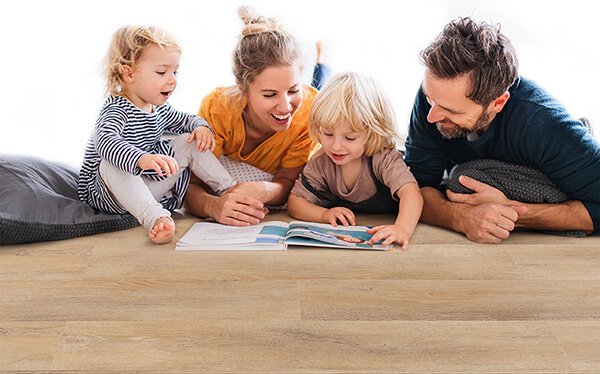
Installation:
All three types of flooring are relatively easy to install, but the specific installation method may vary depending on the product.
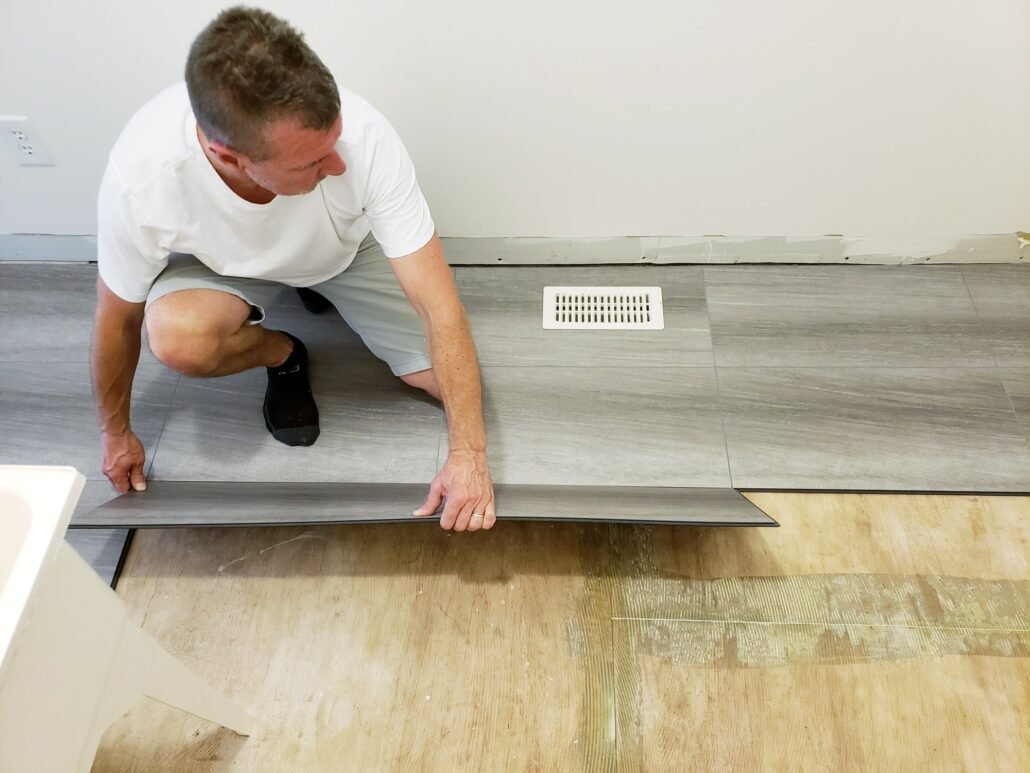
Cost:
The cost of SPC, LVT, and WPC flooring can vary depending on the specific product and manufacturer. However, in general, WPC flooring tends to be the most expensive due to its wood and plastic composition. LVT flooring is usually less expensive than WPC flooring, but can still be more expensive than SPC flooring. SPC flooring is often the most affordable option due to its density and water resistance.
Here’s a table summarizing the differences between SPC, LVT, and WPC flooring:
| Feature | SPC Flooring | LVT Flooring | WPC Flooring |
|---|---|---|---|
| Composition | Limestone powder, PVC, stabilizers | Printed layer, wear layer, a backing layer | Wood flour or fiber, plastic, foaming agent |
| Water Resistance | Highly water-resistant | Water-resistant with sealed seams | Highly water-resistant |
| Durability | Highly durable | Highly durable with a wear layer | Durable, but may be susceptible to dents |
| Stability | Most stable | Less stable than SPC/WPC if not installed properly | Stable, but may expand/contract |
| Comfort | Least comfortable | Comfortable underfoot depending on the product | Most comfortable due to foaming agent |
| Installation | Click-lock together | Can be glued down or floated over existing floor | Can be floated over existing floor |
| Cost | Most affordable | Less expensive than WPC, but more than SPC | Most expensive |
*It’s important to note that the specific characteristics of each type of flooring can vary depending on the manufacturer and product.
Final Thoughts
Making the right choice in vinyl flooring for your home or business requires careful evaluation. With SPC, LVT, and WPC all offering distinct advantages and drawbacks it can be tricky to know which option is best suited to you.
Considerations such as durability, cost-effectiveness, and water resistance should guide your decision-making process – not just aesthetics!
Depending on what specific needs you have from a new surface covering then one of these three types could end up being an ideal solution; if strength & protection are top priorities then SPC might come out ahead; if luxury looks without high maintenance costs matter above everything else then LVT would likely prove its worth; whilst pragmatic requirements like comfortability plus wetness security make WPC the go-to selection.
Whatever route you take with regard to materials look for dependable outcomes that meet expectations – this combination will bring about optimal results when selecting modern vinyl floor coverings today!
With the right product and professional installation, you can invest in a high-quality vinyl flooring solution that is sure to stand up over time.
Whether it’s for your home or business, don’t hesitate to consult with an expert who understands all of your options and can help select the perfect option for long-term satisfaction.
You may even be able to try before you buy by requesting samples from manufacturers – giving yourself peace of mind while making one of life’s most important decisions!
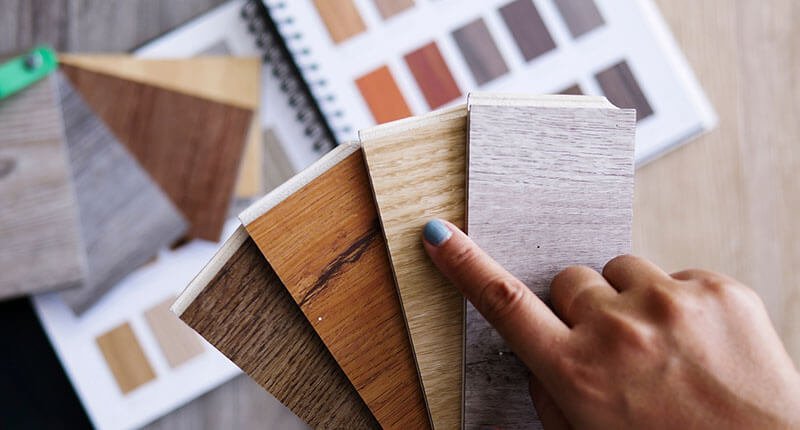
When researching your flooring options, the choices can be overwhelming. But for those looking for a reliable and cost-effective solution – SPC, LVT, or WPC vinyl floors are sure to fit the bill! Their durability, water resistance, and affordability make them an ideal choice with proper installation and maintenance ensuring satisfaction long into the future.


